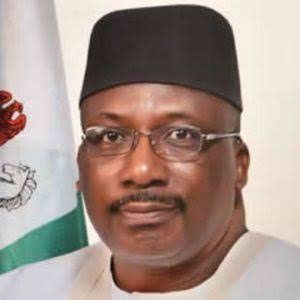advised the military leadership to develop a new strategy in the
counter-insurgency operations in the North-East.
Dambazau gave the advice in a lecture titled, “Strategic Military
Leadership and the Emerging Threats to National Security: My
Perspective” during the inauguration of Army War College Nigeria Course
5/2021, on Friday in Abuja.
He said that the Forward Operations Base (FOB) and Super Camp strategies
so far adopted by the military in the Northeast had not been most
efficient in tackling insurgents.
Dambaza, who is the immediate past minister of interior said that while
the super camp strategy had not in itself most efficient in force
protection, it exposed the vulnerable communities to terrorists’
attacks.
He said that the whole idea was to create a balance between force
protection and civilian protection, adding that there was a need for the
military authority to seek the best way to achieve that.
“I cannot stand here to tell you that this is what they should do but I
believe it is something that can be done because it is very important to
protect the force and equipment and also protect the civilian
communities.
“Like suggested too this cannot be left to the military alone as the
military has their role very clearly and therefore, the civil defence
and the police should be used to ensure the protection of our civilian
communities.
“Because the insurgents have realised the fact that civilian communities
are soft targets,” he said.
The former army chief also called for effective coordination of the
Multinational Joint Task Force (MNJTF) to ensure more commitment by
member countries to be able to defeat the terrorists.
He also advocated a holistic and all stakeholders approach in tackling
the security challenges as well as enhanced intelligence, adequate
equipment, manpower and personnel welfare.
According to him, intelligence is a critical area in tackling the
current and emerging security threats.
Dambazau also suggested that more needed to be done to address the
current ethnic agitation in different parts of the country, adding that
those non-state actors were also citizens of Nigeria.
According to him, Boko haram started as a Taliban of young men hiding in
Yobe but today we have insurgents and ten years on we are still
fighting.
“I believe that the multifaceted approach can be adopted and the problem
is that we think that every security issue is the military show but we
have the administration of justice approach.
“It is the primary responsibility of the police to maintain law and
order and so we need to also strengthen the police to be able to do that
aspect,” he said.
According to him, there are four aspects that need to be addressed; one
category has to do with a threat to our sovereignty and territorial
integrity.
“Other categories have to do with the issue of law and order, the
wellbeing of citizens and the corporate existence of the country.
“There are also issues that have to do with governance like the issue of
education, poverty, health and more,” he said.
Dambazau said the country had started witnessing a new war of “ethnic
extremism” emanating from IPOB in the southeast and OPC in the
southwest, alongside secessionist threats.
According to him, the two groups had been making efforts to ignite
nationwide inter-ethnic conflict through their violent attacks on
northerners’ residents or transacting businesses in the south as a quick
way to realise their dream for a divided Nigeria.
He said there was parallel between Boko Haram, a religious extremist
group and the IPOB and OPC, both ethnic extremist groups, adding that
all the three groups operate on the platform of extremism.
“They are all non-state actors; they all have separatist agenda to carve
out states out of Nigeria’s territory; they all do not believe in the
Nigerian project, its unity and peaceful co-existence just like BH.
“They are also beginning their projects by attacking security forces and
those they consider their enemies,” he said. (NAN)



